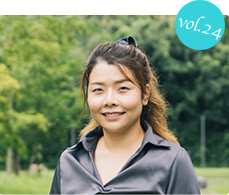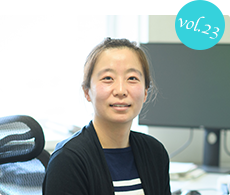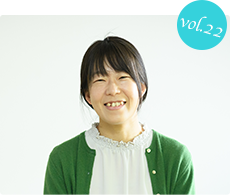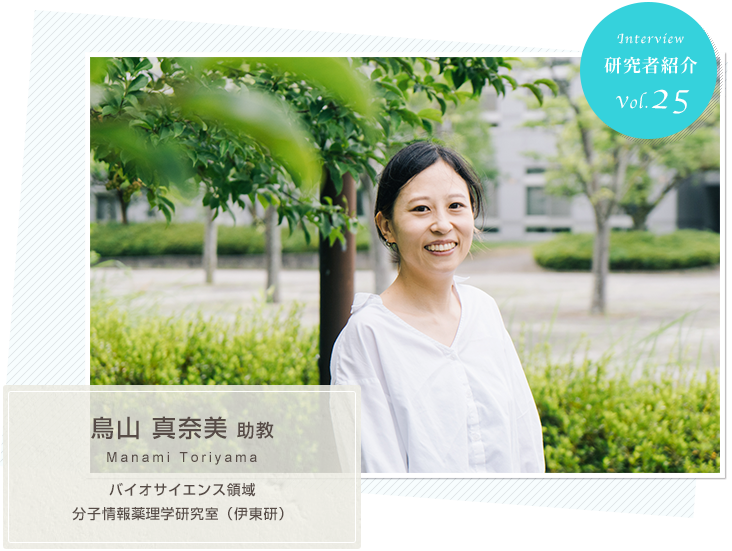
![]()
D. (Bioscience) from Nara Institute of Science and Technology (NAIST) in 2012. After an 8-month break due to childbirth and childcare, she was a postdoctoral fellow at the University of Texas at Austin (U.S.A.) in the same year. 2015 Specially Appointed Researcher, Graduate School of Pharmaceutical Sciences, Osaka University from April 2019, she will be Assistant Professor at Nara Institute of Science and Technology (NAIST) and Specially Appointed Assistant Professor at Graduate School of Pharmaceutical Sciences, Osaka University (concurrent appointment). Her current research interests include functional analysis of primary ciliary signaling in neurodegenerative diseases.
Why did you become a researcher?
Looking back, there was no moment when I thought I wanted to be a researcher; I just kept doing what I "liked" and before I knew it, I was on this path.
When I was in high school, I was interested in the effects of drugs and wanted to study pharmacy, but I ended up studying agriculture, which was not what I wanted to do. During that time, I had a part-time job as a lab assistant, and that is when I decided to go to graduate school. In my part-time job, I was in charge of putting plant seeds on agar, germinating them, cutting off the shoots, and extracting genes, etc. I really enjoyed the experiments. Although I did not understand the content (topic) of the research, I just enjoyed the sequence of events, such as what happens when this kind of chemical is applied. From there, I began to think about the meaning of the work, and I came to understand that research is for this work, and I began to think that research is interesting.
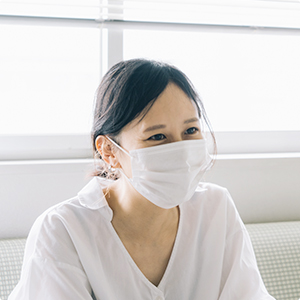
I was introduced to my current research topic at the Ito Laboratory at the University of Tokyo. I was originally interested in the mechanisms that maintain the human body and the development of disease, which led me to the question of why drugs can cure disease. Dr. Ito was working on G proteins, which are typical drug targets, and I found that absolutely fascinating. I enjoyed every day during the five years I was there, and I worked feverishly on experiments day and night, even on weekends and holidays.
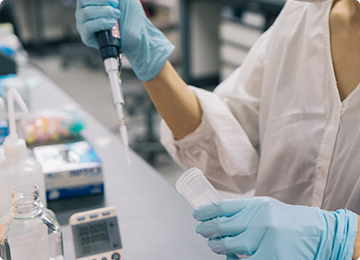
I got married while I was a Ph.D. student and gave birth to my first child two months after graduation. I loved research so much that I really wanted to go to the U.S. immediately after graduation to do top-notch research, but at the same time I had the problem of when to have a child. I did, and the baby was born just in time after I finished the course. When raising a child for the first time, I took an 8-month break, knowing that I would not be able to go abroad immediately, and during that time I kept sending emails to universities in the U.S. to apply. My husband was initially reluctant to go abroad, but I said I wanted to go, and we managed to get into the same university as a couple. We came to the US when our child was about 7 months old and stayed for about 3 years. My research in the U.S. was fulfilling, and I never thought that raising a child was difficult at all.
What I found amazing in the U.S. was that there were more than 20 people in the same lab, and 90% of them were women. My field was medicine (embryology), but that would be impossible in Japan. There were women in leadership positions, and they were able to balance research and their own lives, as were the postdoctoral fellows around them. There were many colleagues doing research at different stages of their lives, and I learned a lot from their different ways of spending their time.
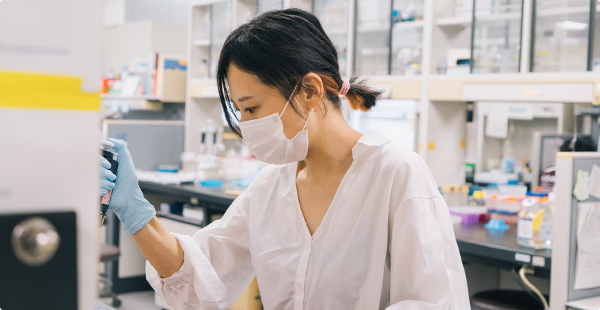
My second child was born in the U.S. and I returned to work after 6 weeks. Then my husband got a job at our university, so we all returned to Japan as a family. When I returned to Japan, I planned to work in a research-related job, without specifying whether I wanted to work for a company or a university. By chance, there was an opening at Osaka University, so I applied and started working there as a postdoctoral fellow right after I returned to Japan. My daily life was hard during the three years I was at Osaka University, probably because I was commuting an hour and a half each way to work. My husband took me to and from daycare, so it shouldn't have been too much of a burden, but for some reason it was hard. I think I felt the silent pressure, unique to Japan, that you (women) have to do more childcare and housework. After that, my husband was transferred to another university by himself at the same time I arrived at NAIST in April 2019, and here I am today.
At present, I enjoy everything about research, and this is what drives me every day. Basically, 9 out of 10 experiments I do are failures, but when I discover something interesting, I become addicted to it. This fascination can be compared to the feeling of solving a puzzle.
Right now, I am working on understanding the mechanisms that cause neurodegenerative diseases such as Alzheimer's, and in the future I would like to translate this into the development of drugs to cure the disease and methods to prevent it. If I find that a certain compound is effective in improving certain symptoms, there is a possibility that it could be used as a medicine in the future. I have always hoped that the phenomena I have discovered will be useful in treating diseases in the future.
Balancing research and raising children
I have three daughters, ages 9, 6, and 2. My husband works alone and is away during the week, so my mother and I do some of the housework and childcare. My mother comes half the week from Kyoto, where my parents live, and I am very grateful to her. If my husband and I lived together, I would probably be the one doing the housework and childcare. But that was not the case when I was in the United States. I think it was because the people around me, especially his boss (a man), were committed to the house. Do you think you are easily influenced by your environment? When we had our second child in the US, he took a week or two of male maternity leave (although he sometimes went to the lab for a few hours a day). But when our third child was born in Japan, would he take maternity leave? I asked him if he would take maternity leave if his third child was born in Japan, and he said, "Of course not. I think the timing was right after the change in the workplace, but there is still no foundation or worldview in Japan for men to take care of children and housework. I think he is also struggling left and right.
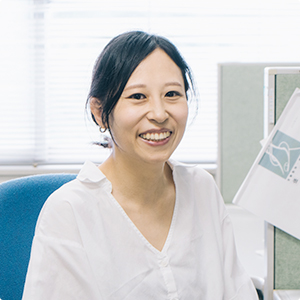
When my husband was working alone and we were raising our three children, I once asked a babysitter to pick them up from daycare so that I could work overtime, using the subsidy system provided by the Office for Gender Equality. However, it did not continue because my mother was reluctant to use a sitter. This may be a problem for Japan as a whole, but I think it has to do with the fact that there is a reluctance to outsource child-rearing. I make a rough schedule for my experiments starting in the morning, but it doesn't always go smoothly, and it's very stressful being separated from the rest of the day until pickup time. I have to eat dinner, bathe the kids, and put them to bed, so I can't extend my overtime as long as I'd like. There are people who want to take care of their children themselves, including picking them up, and there are others like me who want a sitter to help them. I hope that the idea that neither is right and that it is okay to choose either will become more widespread.
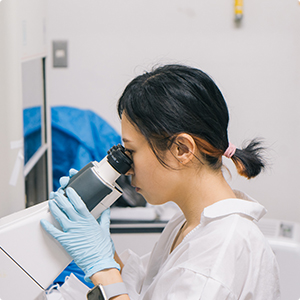
Daily schedule

I wake up around 6:30 a.m. My oldest and third daughters also wake up, so I make breakfast and eat it. I send my oldest daughter to elementary school after 7:00 a.m. and my second daughter finally wakes up, so I feed her again and get ready for school, which is around 8:00 a.m. I take them both to daycare and get to work before 9:00 a.m. I travel within a two kilometer radius between work and home, but it takes me a long time to get there. I work until before 6:00 p.m., pick up the kids at 6:00 p.m., have dinner at 7:00 p.m., take a bath, and put them to bed at 10:00 p.m. At home, I can't concentrate with the noise of children's voices, so I don't do basic work. I can't do it. There are times when I work after the children go to bed, but basically I work from 9:00 a.m. to 6:00 p.m., and I work without a second thought.
On Saturdays and Sundays I sometimes leave my kids with my husband and come to the university, but basically I work during the week and just answer emails.
I try to relax by taking the whole family for a drive once in a while. I like to go a little farther and see the ocean in Osaka. It makes me feel refreshed.
What I try to do in my daily life is to work ahead of schedule as much as possible, because I worry about when I will have to take time off for my children's health. I try to work ahead of schedule as much as possible, which gives me more psychological space, so that is something I try to work on.
The members of my lab are very nice to me. I often have to take time off for my child, but the academic assistants follow up on the students' experiments, and the students recognize that my taking time off is just a normal part of my work. I am sincerely grateful for their understanding of my absence, despite the burden it places on everyone.
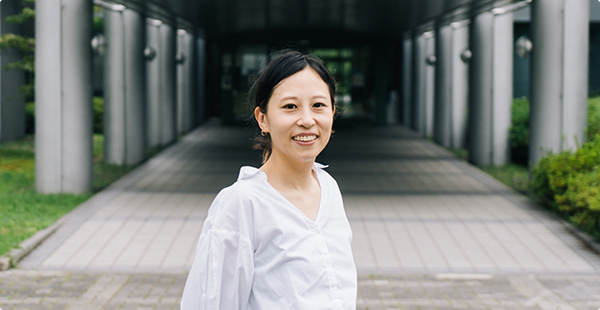
Research environment and challenges at NAIST
The lack of female faculty members is a problem. I am the only female faculty member on the floor where my lab is located. There are probably no women on the floor below us either. Although the percentage of female faculty members in the life sciences should be higher than in other fields, the percentage of female faculty members is low, so I think we need to raise the level of female faculty members by any means necessary.
The low number of female faculty members raises the possibility of inadequate support for female students. In research, students spend most of their time in the lab during the day, so it is important to support them in their daily lives. For example, it is sometimes difficult for women to talk to men about matters related to their personal lives. I think it must be hard for students not to have a faculty member around to talk to. When I was a student myself, my bosses were all men, and I sometimes wondered if things would have been different if there had been a woman boss. So I think it would be better to increase the number now anyway.
Division of Biological Science, Laboratory of Molecular Informatics and Pharmacology(Ito Lab.)
(July 2021)

-
2021.8 updated
Division of Materials Science
-
2021.3 updated
Division of Information Science
-
2021.3 updated
Division of Biological Science






